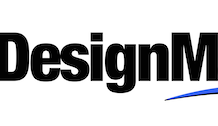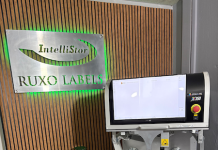Lensig Druck, one of Heidelberger Druckmaschinen AG’s (Heidelberg) first new digital subscription offering customers, has reported a significant increase in the overall efficiency of its machines. In this pay-per-use model, Heidelberg provides its customers with all the components required for the successful operation of the print shop, such as the machine system, software, consumables for all offset machines, and service; the customers pay exclusively for the number of printed sheets.
Lensing Druck has set a course for growth with the digital transformation of the company and therefore opted for Heidelberg’s subscription offering. In addition, the overall efficiency at Lensing Druck should be further increased over the contract term of five years as a result of the optimised interaction of all the components. Lensing Druck has already been using a new Heidelberg Speedmaster XL 106 on a subscription basis for around four months. The agreement also includes the supply of consumables for a third-party machine still in use – billed based on the number of printed sheets.
Lensing Druck is now reaching its first conclusions, ‘After four months of experience with the subscription model, we can say that our decision was a good one. We have been able to significantly increase the overall efficiency of our machines even after this short time, and our production volume is already more than 20 % above the target contractually agreed with Heidelberg,’ says Robert Dembinski, managing director at Lensing Druck. The print shop is much more efficient than in the past, particularly when it comes to processing shorter runs. ‘Our business is also seeing an increase in the number of jobs in combination with declining run lengths. Optimizing how we process short runs therefore has a major impact on profitability,’ said Dembinski.
A key technology in the cooperation with Heidelberg, especially with regard to tracking performance data, turned out to be the Heidelberg Assistant, which provides both Lensing Druck and Heidelberg with a real-time overview of the current performance of the entire print shop. In regular coordination rounds, Heidelberg together with the customer monitors whether the performance is within the contractually agreed limits and immediately initiates suitable measures if this is not the case. Both sides use the Heidelberg Assistant to access the print shop’s performance data during this process, and thus all decisions can be made on the basis of real-time data, which additionally underlines the importance of big data applications. Using the Heidelberg Assistant, Lensing Druck will shortly also be able to view the consumption as well as the stock of inventory of the required consumables and if necessary log directly into the Heidelberg eShop and, for example, order supplies of materials that Heidelberg does not permanently have available at the customer’s premises.
Heidelberg is still right on schedule with the implementation of the subscription offering. The company wants to have 30 contracts concluded with customers by the end of the current financial year, and around 100 contracts by the end of the following financial year. Heidelberg expects an average annual sales volume of around R16 million (one million euros) for each contract.





















